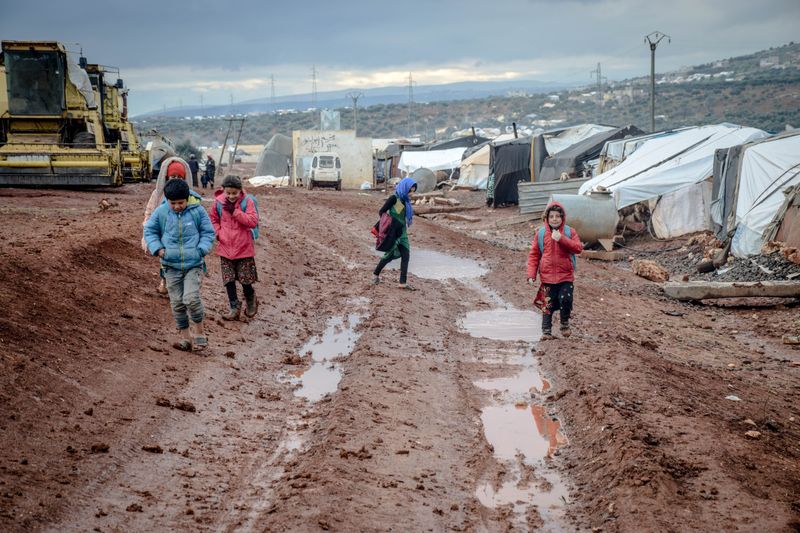Table of Contents
The Plight of Afghan Refugees in Pakistan: Arbitrary Arrests and Harassment
A Crisis Unfolding
On World Refugee Day, Amnesty International has called on the government of Pakistan to urgently address the concerning treatment of Afghan refugees and asylum seekers, who have fled persecution by the Taliban. These individuals, many of whom arrived in Pakistan with regular visas that have since expired, are now facing arbitrary detentions, arrests, and the threat of deportation.
The situation for Afghan refugees in Pakistan is dire, with limited international attention being paid to their plight. Caught in an impossible situation, these refugees are unable to return home or find permanent residency in Pakistan. Their precarious legal status and the arduous asylum and third-country relocation processes have made them even more vulnerable, leaving them without a clear escape route from persecution and hardship.
Harassment and Detentions
Amnesty International conducted remote interviews with Afghan refugees in Pakistan, revealing a pattern of harassment and arbitrary arrests by the Pakistani police and officials. Most disturbingly, even those with valid visas and legal status were detained and subjected to searches and interrogations without proper documentation outlining the reasons for their detention. Several refugees reported being forced to pay fines without any paperwork or receipt for the transaction.
These incidents represent just a fraction of the challenges faced by Afghan refugees who have sought asylum in Pakistan. Their vulnerability is further heightened by delays in the third-country relocation processes and expired visas, which have left them legally exposed.
A Complex Web of Bureaucracy
Obtaining proof of registration from the United Nations High Commission for Refugees (UNHCR) has proven to be a prolonged and challenging process for Afghan refugees in Pakistan. Combined with lengthy visa renewals from the Pakistani government, these bureaucratic hurdles have made it easier for the police to harass them and for other authorities to extort money from them.
The refugee registration system has been plagued by delays, with refugees reporting long waiting times for interviews and sluggish responses from the authorities responsible for issuing Proof of Registration (PoR) cards. This lack of legal documentation has severe consequences for Afghan refugees, limiting their access to formal employment, healthcare, education, and basic services.
Women and Girls at Greater Risk
The situation is particularly dire for women and girls, who face discrimination both in Afghanistan and Pakistan. They often struggle to enroll in schools, as some institutions refuse to admit them due to uncertainties surrounding their legal status.
Editorial: A Call for Urgent Action
The treatment of Afghan refugees in Pakistan is a humanitarian crisis that demands immediate attention from the international community. It is essential that governments and human rights organizations work together to address the challenges faced by Afghan refugees and ensure their safety and well-being.
While some countries, including the United States, Canada, the United Kingdom, and Germany, have offered special relocation schemes for Afghan individuals at risk of persecution by the Taliban, delays in visa processing and the absence of diplomatic representations in Afghanistan have left many refugees stranded in Pakistan.
Amnesty International’s call to expedite the registration and review processes for Afghan refugees by the UNHCR, and for the Government of Pakistan to cease arbitrary arrests and harassment, is a crucial step towards safeguarding the rights of these vulnerable individuals.
A Test of International Obligations
The treatment of Afghan refugees in Pakistan is not just a matter of national concern but also an issue of international obligations. The international community must recognize its responsibility to protect and support those fleeing persecution and violence.
It is imperative that countries offering relocation programs expedite the issuance of visas, providing a lifeline to those in urgent need. Furthermore, the UNHCR must streamline its processes to ensure that Afghan refugees in Pakistan receive the necessary legal documentation and protection swiftly.
The situation of Afghan refugees in Pakistan is a testament to the failure of the international community to adequately respond to the crisis in Afghanistan. It is a call to action, demanding that governments and organizations rise above bureaucratic obstacles to provide genuine support and protection to these vulnerable individuals.
Conclusion: A Plea for Empathy and Solidarity
The suffering and turmoil faced by Afghan refugees in Pakistan are a reminder of the urgent need for compassion and solidarity. The international community must not turn a blind eye to their plight, but instead take decisive action to ensure their safety, dignity, and well-being.
By prioritizing the expedited registration and review of Afghan refugee cases, and by pressuring the government of Pakistan to end arbitrary arrests and harassment, we can begin to address the injustices faced by these resilient individuals.
It is only through collective efforts and a genuine commitment to human rights that we can provide a pathway to hope, protection, and a better future for Afghan refugees in Pakistan.

<< photo by Ahmed akacha >>
The image is for illustrative purposes only and does not depict the actual situation.
You might want to read !
- The Path to a Global Ocean Treaty: Reflecting on Progress and Future Steps
- A brewing conflict threatens a warming planet
- Ukraine’s LGBT Center: Attacked and Defiant
- Addressing the Closure of Civic Space in the Americas: Urgency for OAS States
- Greenpeace Takes a Stand: Blocking Equinor’s Illegal Toxic Waste Export
- Exploitation and Injustice Continue: The Fate of Migrant Workers in Post-World Cup Qatar
- Eswatini: Ending the Abuse of Courts to Suppress Union Leaders
- Greece’s Ongoing Assault on Human Rights: Uncovering a Disturbing Smear Campaign
- Kyrgyzstan’s Suppression of Freedom of Association: An Urgent Call for Change